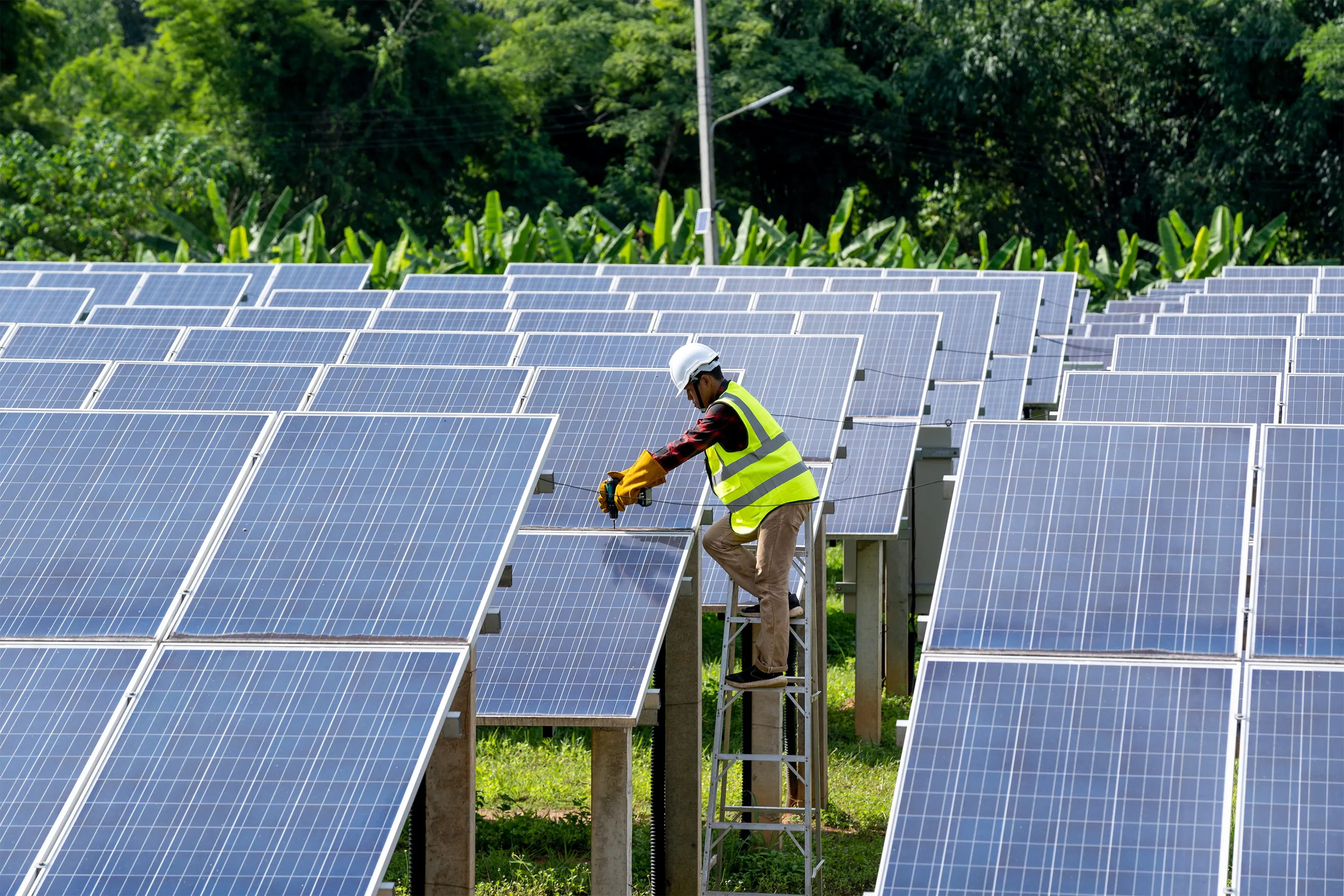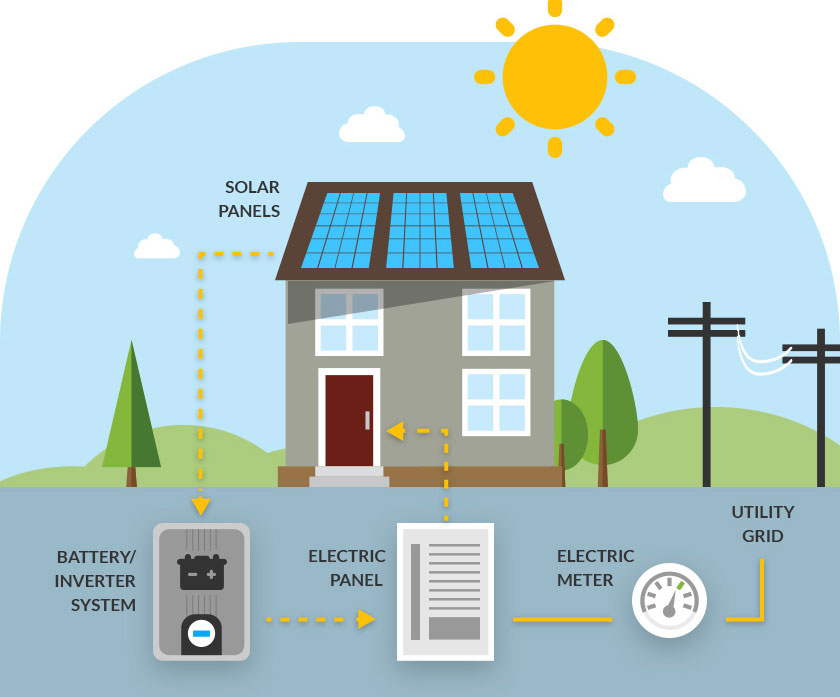How Best Solar Panel Company Virginia can Save You Time, Stress, and Money.
Virginia Residential Solar Installers: Lumina Solar Focuses On Supplying Advanced Photovoltaic Solutions For Residences And Companies
History and Establishing
Have you ever wondered how a solar panel company springs from a simple stimulate of inspiration into a powerhouse of renewable resource? It frequently begins with a vision-- one fueled by a mix of development, decision, and a pinch of serendipity. The journey of numerous solar companies mirrors the advancement of the innovation itself: from bulky, inefficient panels to streamlined, high-efficiency marvels utilizing the sun's bounty.
The Early Days
In the late 20th century, when solar energy was still a niche idea, leaders planted seeds for what would become a worldwide movement. Imagine a little workshop filled with curious engineers, relentlessly try out solar batteries. Their enthusiasm was palpable, typically driven by a desire to fight climate modification and lower dependence on nonrenewable fuel sources.
One such anecdote is about a founder who, inspired by a camping journey, realized that even in remote areas, read more the sun could power vital devices. This simple observation sparked a company's objective to democratize access to clean energy.
Founding Principles

- Development: Continually pushing the borders of solar technology to improve performance and resilience.
- Sustainability: Dedicating to environmentally friendly manufacturing and minimizing carbon footprints.
- Accessibility: Making sustainable energy services affordable and practical for daily users.
Milestones in Development
| Year | Secret Occasion |
|---|---|
| 1985 | Business founded in a little garage, focusing on research and advancement. |
| 1995 | First business solar panel item launched, gaining local attention. |
| 2005 | Expanded to worldwide markets, welcoming global renewable energy goals. |
| 2015 | Introduced advanced photovoltaic panel technology with improved energy conversion. |
Isn't it fascinating how these incremental actions, often ignored, shape the energy landscape today? The solar panel business story is not almost innovation; it's about an unrelenting quest for a brighter, cleaner future.

Innovations in Photovoltaic Panel Technologies
Ever observed how some solar panels gleam brighter and last longer? It's not magic; it's the science of photovoltaic effectiveness. Modern solar panel business invest greatly in technologies like bifacial cells, which record sunshine from both sides, boosting energy harvest without broadening roofing system space. Have you ever questioned why some panels perform much better on cloudy days? That's due to advances in thin-film solar technology, which thrives under diffused light conditions.
Product Variations Tailored to Distinct Needs
One size never ever fits all. Solar panel companies now offer:
- Monocrystalline panels for maximum efficiency and sleek aesthetic appeals, suitable for space-constrained rooftops.
- Polycrystalline panels, which provide a cost-efficient option without sacrificing excessive output.
- Building-integrated photovoltaics (BIPV), merging solar tech seamlessly into architectural elements like windows and exteriors.
Picking the best item isn't almost upfront cost; it has to do with matching your environment, energy goals, and long-term savings. Homes shaded by trees require panels that excel in low-light scenarios, something many overlook until energy costs climb all of a sudden.
Technical Tips for Ideal Selection
- Assess the temperature level coefficient-- lower values suggest panels lose less efficiency on hot days.
- Look for panels with boosted anti-reflective coatings to make the most of light absorption.
- Think about the panel's service warranty not simply for defects, but for ensured power output over decades.
- Do not ignore the significance of the inverter innovation matched with the panels; it can make or break your system's performance.
Beyond Panels: Emerging Patterns
Imagine photovoltaic panels that adjust their angle automatically to go after the sun-- tracking systems are becoming more available, increasing yield considerably. Or solar tiles that mix undetectably into your roofline, transforming your home into a quiet, self-dependent power generator. These developments are improving what a photovoltaic panel company offers-- not just items, however incorporated energy solutions.
Market Existence and Global Operations
Ever question why some solar panel business appear to sprout up in every corner of the globe while others hardly make a ripple? The distinction lies not just in technology however in mastering the art of browsing varied markets. Broadening worldwide is like planting seeds in various climates-- you need to comprehend each environment's unique conditions to thrive.
Take, for example, the detailed dance of logistics and supply chain management. Shipping panels midway across the world isn't simply about range; it's about timing, customizeds, tariffs, and adapting to regional demand fluctuations. A company with robust international operations expects these variables, guaranteeing panels get here on schedule without inflating expenses. This foresight is no small task and often separates market leaders from followers.
Secret Methods for Expanding Market Existence
- Localized manufacturing: Establishing production centers near target markets lowers shipping hold-ups and import complexities.
- Strategic partnerships: Working together with regional companies accelerates market penetration and develops trust.
- Adaptive product style: Customizing photovoltaic panel tech to weather, sun strength, and facilities nuances improves performance and approval.
What about the human element? Photovoltaic panel companies operating internationally need to fix up cultural distinctions and regulative nuances without losing sight of their core mission. For example, what works in a sun-drenched desert may fail in a damp coastal region. Often, the most innovative solution is merely listening-- soaking up local insights to improve technology and method.
Specialists typically recommend a phased rollout instead of a shotgun growth. Why run the risk of overextension when measured growth develops sustainable momentum? Scaling carefully means balancing aspiration with operational strength - Solar Panel Company. In the race for sustainable energy supremacy, patience can be as important as speed.
Ecological Effect and Sustainability Practices
When solar panels first emerged, numerous presumed they carried zero environmental luggage. Nevertheless, the reality is more nuanced. The production of solar batteries includes uncommon earth metals and energy-intensive procedures, which can leave a large carbon footprint before the panels even reach rooftops. Yet, the real environmental expense depends heavily on the sustainability practices employed by the solar panel company throughout the lifecycle of their items.
How frequently do we stop briefly to consider what takes place to photovoltaic panels at the end of their beneficial life? Unlike batteries or electronic devices, photovoltaic panels can last 25-30 years, however disposal and recycling pathways stay underdeveloped in many regions. A company committed to minimizing environmental harm will have a robust prepare for recycling photovoltaic products, restoring valuable silicon, glass, and metals to prevent garbage dump build-up.
Secret Sustainability Strategies
- Making use of low-impact production techniques that lessen water and energy consumption.
- Implementing closed-loop systems to recycle production waste back into brand-new panels.
- Engaging in transparent supply chain audits to ensure ethical sourcing of raw products.
- Designing panels for much easier disassembly to assist future recycling efforts.
It deserves noting that some solar business have actually pioneered ingenious approaches, such as incorporating eco-friendly elements or utilizing less hazardous chemicals throughout fabrication. This not just lowers environmental stress but likewise sets a precedent for the industry. The question stays: can the solar industry really pivot towards a circular economy model without compromising performance or price?
Professional Tips for Assessing Sustainability
- Ask about the company's dedication to carbon-neutral manufacturing and whether they offset emissions.
- Investigate if they partner with licensed recycling facilities dedicated to solar panel waste.
- Try to find transparency reports detailing ecological impacts and sustainability objectives.
- Consider the longevity and service warranty of panels as an indirect step of resource efficiency.
In the end, selecting solar energy must mean more than simply slashing electrical power expenses; it has to do with supporting a future where energy is harvested properly and waste is attentively managed. Photovoltaic panel business that embrace this approach not just brighten homes but likewise cast a brighter light on sustainable innovation.